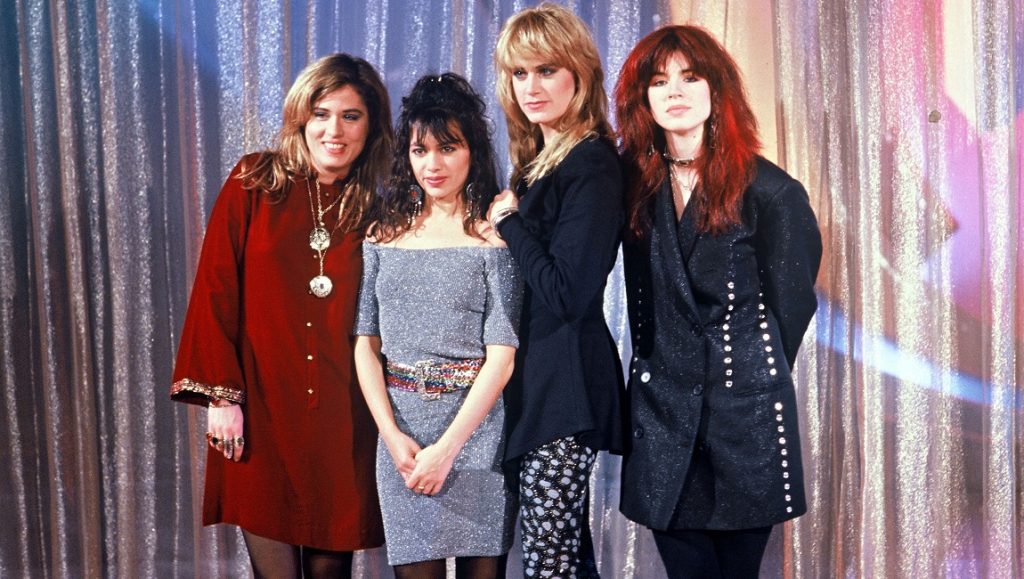The Bangles’ origin story is, at this point, the stuff of pop mythology, with Susanna Hoffs’ perfectly on-brand “must be nice” advertisement for bandmates and the shifting line-up’s emergence in the niche Paisley Underground scene. But that backstory actually goes a long way toward accounting for the band that appears so fully-developed on All Over the Place, their proper debut record. Filtering their love for vintage pop of acts like The Yardbirds and The Mamas and The Papas through an of-the-moment punk aesthetic, The Bangles arrived already at the peak of their coolness. That’s not in any way to disparage their later commercial breakthrough with Different Light or subsequent run of hit singles in any way: I’ll go to bat for any of the band’s eras. But The Bangles of All Over the Place occupied such a unique space, with an aesthetic that was both current and decidedly retro in equal measure.
Consider their choices of covers and how The Bangles execute them. “Going Down to Liverpool” boasts a cheerful, singalong melody, but the jangling guitars are just ever-so-slightly out of tune to keep the single from sounding too MOR, while “Live” is an obscurity by The Merry-Go-Round that speaks to the quartet’s deep connection to the music of the ’60s, delivered in a style much less polished than that of the pop acts of either the late ’60s or the early ’80s. The Bangles were too often dismissed in their heyday as a studio creation, but the selections of these particular songs couldn’t have come from anyone other than these four women whose points-of-view were so simpatico, nor could they have been performed so thrillingly with four-part, folk-inspired harmonies backed by the former bassist from The Runaways.
Lead single “Hero Takes a Fall,” written by Hoffs and Vicki Peterson, immediately showcases The Bangles’ capacity for writing massive hooks and for layering some of the most riveting vocal harmonies in all of the pop canon. That the song is a thorough and unapologetic dressing-down of an egotistical cad makes it a bold statement of sexual agency, as well. That perspective is a throughline on other standouts like “James” and “Silent Treatment,” on which Vicki Peterson takes lead vocal duty, and the notion of forward-thinking agency is reinforced by the fact that all four of the band members’ voices are distinct and prominent over the course of the album.
All Over the Place eventually emerges as a loose concept album on which a powerful cadre of women takes stock of the men in their lives, finds those men woefully lacking, and sends them on their way. What’s so striking about the album is how much venom the band spits via those extraordinary harmonies. On “All About You,” Vicki Peterson observes, “All the pretty things are just to create the myth,” while Hoffs snarls, “I must be a masochist to ever take up with you,” when addressing “James.” Regardless of who sings lead on any given track — only Steele doesn’t get a lead vocal on this album, though she would on future outings — the layering of the group’s background vocals into frequent call-and-response structures only heightens the sense of solidarity.
Though All Over the Place made only a modest impact in the U.S. — “Going Down to Liverpool” netted The Bangles recognition at the Brit Awards — it did garner the band industry attention from the likes of Cyndi Lauper and Prince, and those connections would figure prominently in the band’s commercial breakthrough with their sophomore album. Still, All Over The Place stands as perhaps the best representation of The Bangles on record: A scrappy band of poptimists who were destined to sneak a punk sensibility into their pop aspirations. They’ve been long overdue for reappraisal, and All Over the Place, if rougher than hits like “Manic Monday” and “In Your Room,” is the right place to start.
Part of Kicking the Canon – The Album Canon.


Comments are closed.